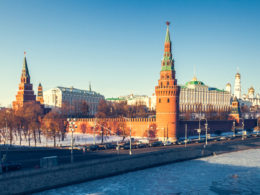The US Treasury said on 17 November that sanctions imposed on Russian oil companies Rosneft and Lukoil are reducing Russian oil revenues and will likely decrease the volume of Russian oil sold over time.
The Treasury's Office of Foreign Assets Control said its analysis of the initial market impact shows the sanctions announced on 22 October "are having their intended effect of dampening Russian revenues by lowering the price of Russian oil and therefore the country's ability to fund its war effort against Ukraine."
The action marked some of the strongest US sanctions since Russia's February 2022 invasion of Ukraine and the first direct sanctions President Donald Trump has imposed on Russia since taking office in January.
The sanctions established a 21 November deadline for companies to cease dealings with Rosneft and Lukoil. Companies that violate the sanctions risk being cut off from the dollar-based financial system.
OFAC's analysis found that several key grades of Russian crude are now selling at multi-year-low prices. Nearly a dozen major Indian and Chinese purchasers of Russian crude have announced plans to pause purchases of Russian oil for December deliveries, according to the analysis.
LSEG Workspace data showed benchmark Urals crude loaded at Russia's Black Sea oil hub of Novorossiysk traded at $45.35 per barrel on November 12, the lowest level since March 2023. At that time, Russia was just beginning to assemble a "shadow fleet" of tankers to avoid a G7-led price cap of $60 a barrel imposed in December 2023.
Brent crude futures stood at $62.71 on 12 November and traded at $64.03 on 17 November. Urals Novorossiysk rose to $47.01 on 17 Nov. after loadings resumed at the Black Sea port following suspension caused by a Ukrainian drone and missile attack.
Reuters reported earlier this month that Russian oil discounts to Brent had widened as major Indian and Chinese refiners reduced purchases in response to US sanctions.
Enforcement of the sanctions remains unclear given that China and India are the two largest buyers of Russian oil.
A Treasury spokesperson said the sanctions were "starving Putin's war machine" and the department "is prepared to take further action if necessary to end the senseless killing" in Ukraine.
Read also
-
Half a million shells annually: How China enabled Belarus’s munitions output for Moscow
-
“Not at war, no longer at peace”: NATO commander warns Russia watches Europe closely and exploits every crack in its shield
-
“Everything burned down”: Dnipro media facilities destroyed as 15 drones strike city, two injured





